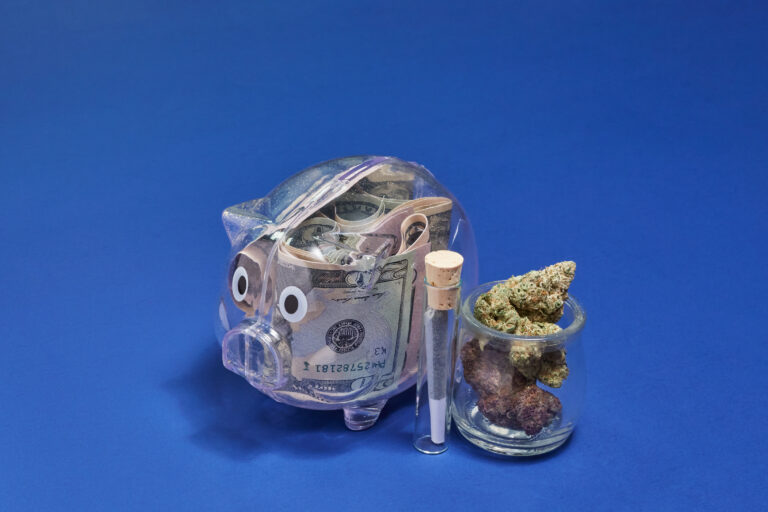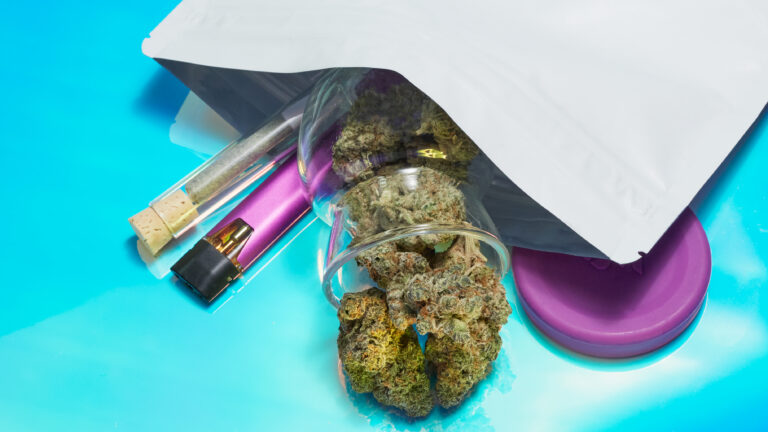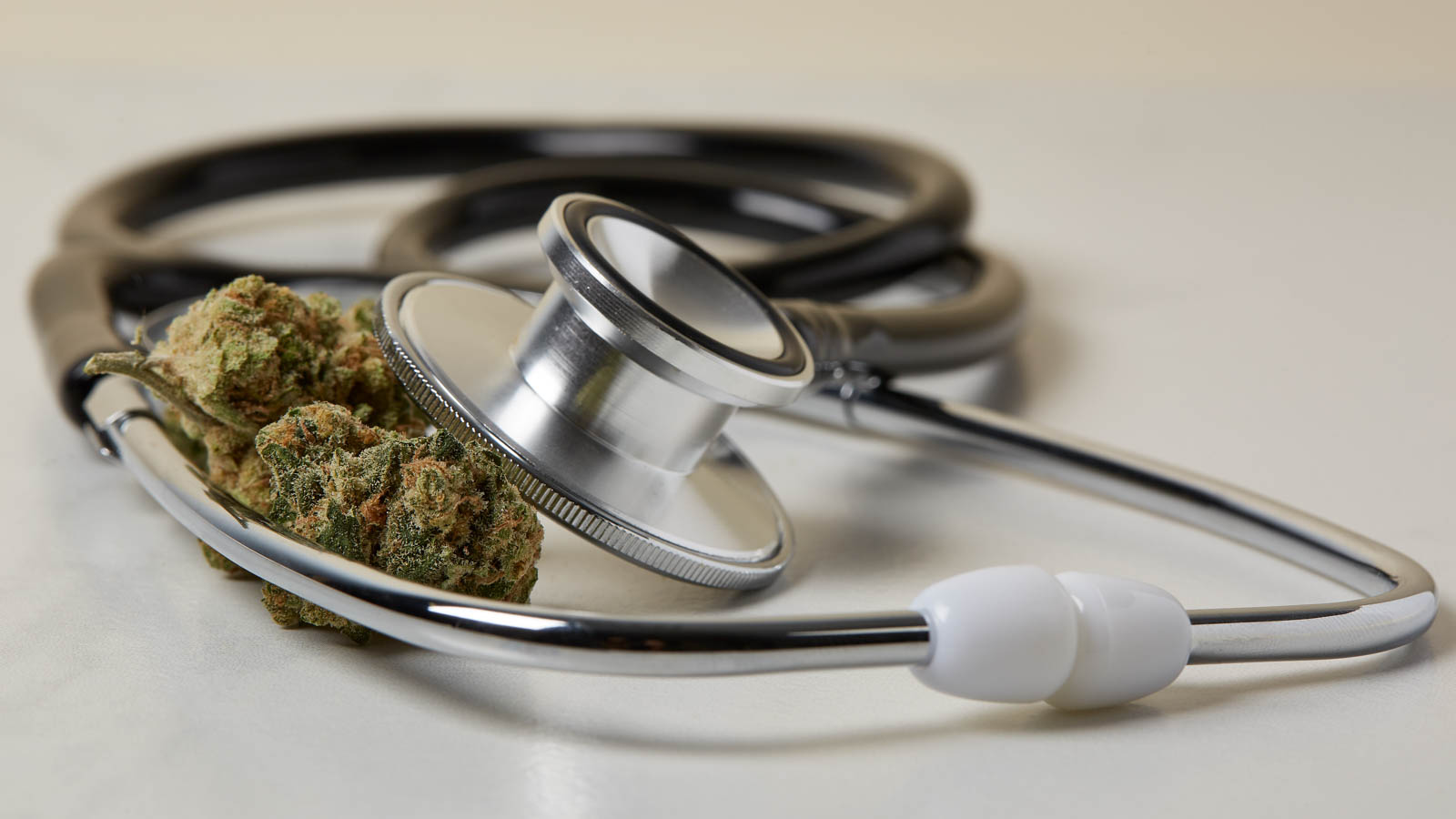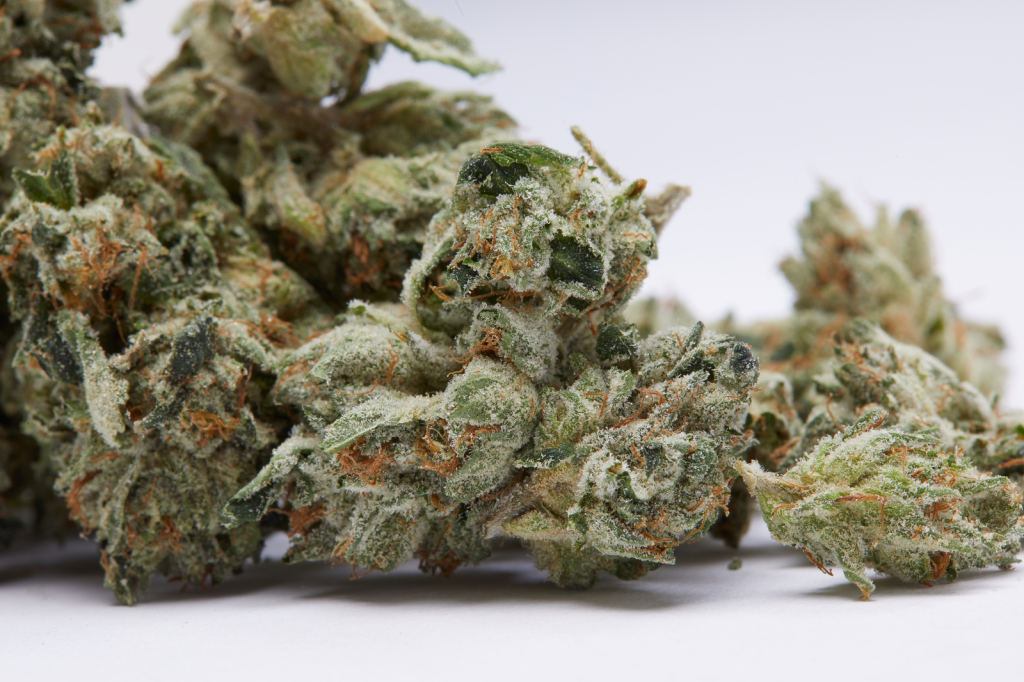One of the major arguments in favor of legalizing cannabis is tax revenue. States that legalize weed can cash in on the often large excise fees on the sales of recreational cannabis. Recreational cannabis consumers, who may only consume the plant on occasion, may easily overlook the additional (if hefty) fees in exchange for having the option to purchase safe, legal cannabis in a regulated shop.
However, for medical marijuana patients who rely on medical cannabis as part of a daily regimen, paying extra can be a major hardship, especially for disabled medical patients and those who may be low-income or relying on government assistance.
Cannabis taxes explained
The answer to whether taxes apply to your medical cannabis purchases depends on which state you reside in and what kind of medical marijuana system is in place. It also often depends on the legality of recreational cannabis in your state.
 Photo by: Gina Coleman/Weedmaps
Photo by: Gina Coleman/WeedmapsImage lightbox

There are three different kinds of taxes when it comes to purchasing legal cannabis:
- Excise tax
- Sales tax
- Local jurisdiction tax
Unfortunately, no one is exempt from paying sales taxes on cannabis, as that is simply a state protocol and standard with any transaction. Local jurisdiction taxes depend on the county or city where the sale is taking place. During the process of legalization, many counties, towns, and cities chose to adopt a local tax in addition to the state excise tax. In certain states, such as Nevada and Colorado, a cultivator tax may also be imposed in addition to the other fees.
Some tax exemptions may be allowed for patients with a qualifying medical condition and a physician's recommendation. However, obtaining a qualifying medical marijuana card almost always involves a fee, both for the physician's recommendation and for the actual identification card itself.
Medical cannabis taxes
States with a medical marijuana program but no recreational system in place are more likely to have a medical marijuana tax, as this is the only source of cannabis-related revenue for the state. That being said, the tax on medical cannabis is usually no more than 10%, making medical marijuana still significantly less expensive than recreational.
 Photo by: Gina Coleman/Weedmaps
Photo by: Gina Coleman/WeedmapsImage lightbox

States such as Maine and Washington have a high excise tax on recreational cannabis, with the option to add local tax in certain jurisdictions. They do, however, offer an exemption for qualified medical patients. In Colorado, fees for medical cannabis products are 25% lower than for recreational purchases.
Even in states with medical exemptions, however, medical marijuana patients will still be required to pay the registration fee for an identification card, in addition to any physician fees related to acquiring a recommendation. Depending on how much the patient consumes, these one-time fees may end up saving the patient hundreds or even thousands of dollars in tax exemptions.
Recreational cannabis taxes
With the sole exception of Washington, DC, where possession of recreational cannabis is permitted, but sales are not, all states with legal recreational cannabis have placed an excise tax on its sales. The percentage of the excise tax varies from state to state, and some states permit an additional jurisdictional tax on top of the excise tax. This local tax is typically used to cover administrative costs, fund law enforcement, and collect revenue for the local budget.
 Photo by: Gina Coleman/Weedmaps
Photo by: Gina Coleman/WeedmapsImage lightbox

In states where there is both a recreational and a medical marijuana system in place, medical marijuana patients with a registered medical marijuana identification card may be exempt from paying excise and local taxes. For example, in California, there are three taxes on cannabis: a sales tax, an excise tax, and a local tax. But if you are a California medical marijuana patient, you are exempt from all taxes aside from sales tax. Check with your state and local government website to see if your medical marijuana card allows you exemption from paying excise and local taxes.
Tips for saving money as a medical marijuana patient
If you're a medical marijuana patient looking for ways to save money and avoid paying unnecessary fees, there are plenty of ways to save money while still procuring cannabis products for medical necessities.
- Ask your budtender about a savings program. Some dispensaries offer a savings program for regular customers. So, if you spend a certain amount or visit the store a certain number of times, you may receive a discount.
- Keep an eye out for sales. Many dispensaries offer sales during holidays, especially cannabis-friendly holidays such as 4/20 and 7/10, but also holidays like the 4th of July or Thanksgiving.
- Buy in bulk. If you know your needs and want to maximize your spending, buy a large amount of cannabis ahead of time. State regulations limit the amount of cannabis you can buy, but there are often good deals on purchasing an ounce of cannabis flower at a time, and you may save on a cultivator's fee.
- Grow your own cannabis. This may be a no-brainer for some, but growing your own marijuana is a great way to save money. Growing your own does require a great deal of patience, time, and effort, however. Start by reading our introduction to cannabis cultivation and see if a home grow might be a good option for you.
Bottom line
An unfortunate reality of being a medical marijuana patient is the cost of keeping up with your daily needs and medication. However, there are programs and organizations fighting for greater, more affordable medical marijuana access.
Research and compare local dispensaries and check in with your state's Department of Public Health to see what unique rules and exemptions there are in your area. Use all of the resources available in your state and local jurisdiction to make sure your cannabis needs are being met, and your medical conditions are being treated appropriately.
Featured image by Gina Coleman/Weedmaps




